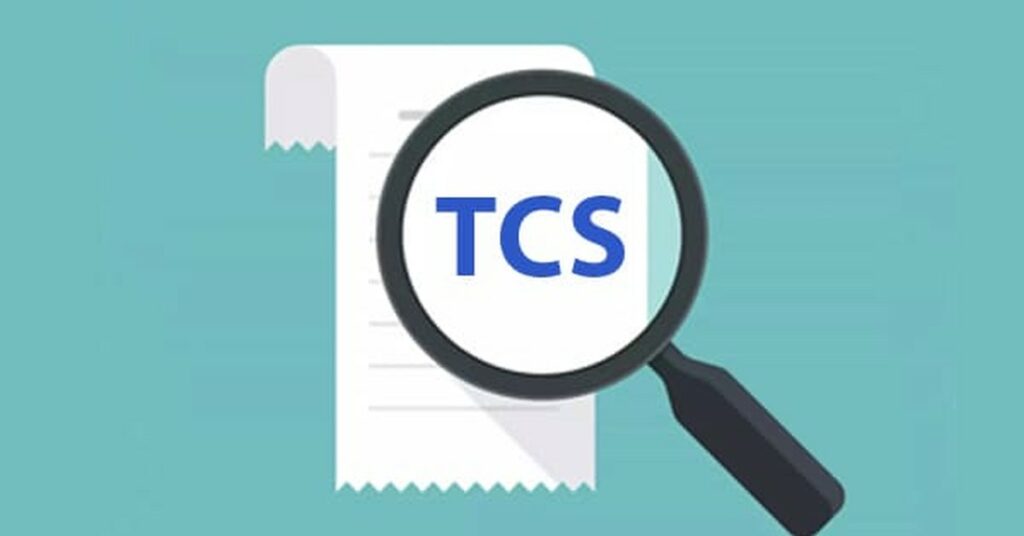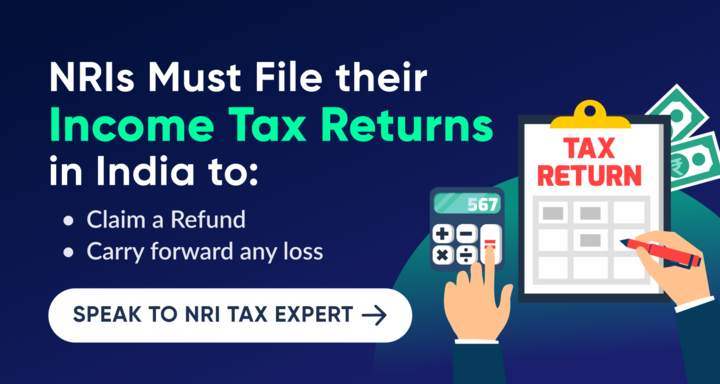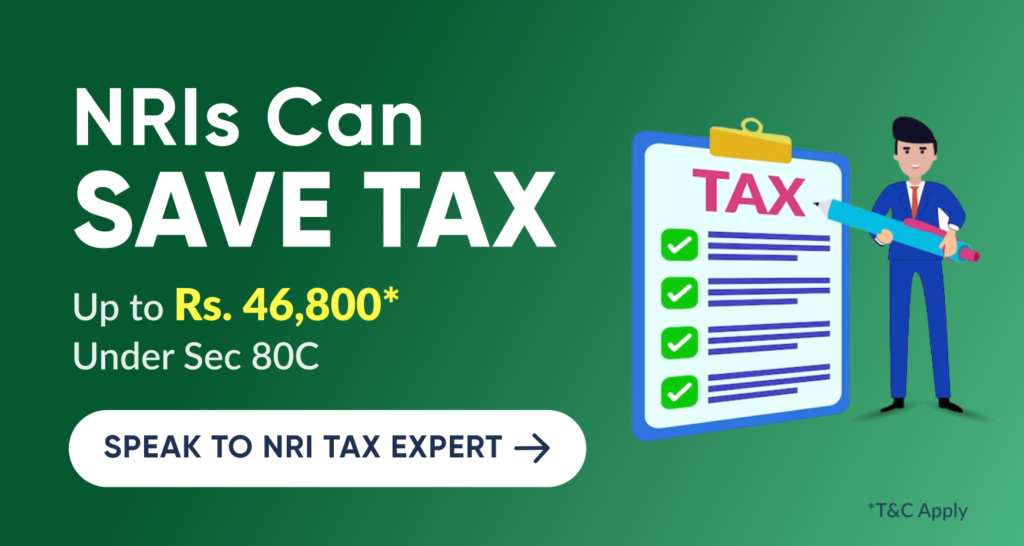People often send money or goods to their families living in different countries, which is referred to as remittances. However, one should be aware of the tax implications associated with these remittances. Many individuals lack knowledge about how to avoid Tax Collected at Source (TCS) on foreign remittance. In this article, we will discuss how to avoid or minimize TCS on foreign remittances.

How to Avoid TCS from Foreign Remittance?
For people seeking information on how to prevent Tax Collected at Source (TCS) on foreign remittances, the answer is here. If you are sending money overseas for educational or medical purposes, you can avail an exemption from TCS up to a maximum of Rs. 7 lakh. The Authorized Dealer will not collect the TCS if the amount or total of the remitted sums by a buyer is below seven lakh rupees in a financial year, but only if the payment is intended for medical or educational purposes.
How Can NRIs Avoid TCS from Foreign Remittance?
The transfer of funds from the Non-Resident Ordinary (NRO) account of NRIs/PIOs to an Non-Resident External (NRE) account or an overseas bank account is referred to as repatriation. NRIs or PIOs are allowed to repatriate funds up to USD 1 million from their NRO account per financial year. It’s worth noting that as per Section 206C(1G), Tax Collected at Source (TCS) does not apply to remittances made by NRIs from their NRO account to NRE or foreign accounts.
Consequently, NRIs can conveniently transfer their Indian earnings such as pensions, dividends, salaries, rental income, investments, profits from businesses eligible for repatriation, and distributions from various types of deposits using their NRO account.
How can NRIs save TCS on Foreign Remittance?
The recent increase in the foreign remittance tax rate in India may lead to higher charges for international money transfers. However, there are strategies to reduce your taxable income. Banks collect the Tax Collected at Source (TCS) for transactions where it is applicable, but you have the option to adjust the TCS amount based on your tax liability.
For instance, if you send Rs. 5 lakh to a relative residing overseas, the TCS amount would be Rs. 1 lakh. However, if your tax liability amounts to Rs. 2.5 lakh, you can offset it by adjusting it with the payable TCS. This adjustment would result in a net tax liability of Rs. 1.5 lakh. Generally, banks provide a TCS certificate upon deducting the TCS. This can be used to claim refunds while filing your income tax returns.
If you do not possess taxable income, you can request a refund for the deducted TCS amount. Additionally, if your overall tax liability is lower than the TCS amount, you are eligible for a refund.

NRIs can Save TCS on Foreign Remittance through SBNRI
SBNRI is a unique online platform that helps residents and NRIs access a range of banking and investment products and services, inward and outward remittance services and taxation thereon. NRIs can easily open an NRO account online through this platform to effectively save, manage, and repatriate their Indian income.
To apply for an NRO account with minimal documentation and in just a few simple steps, follow these instructions using the SBNRI App:
- Download the SBNRI App and log in using your credentials.
- Tap on the ‘Open NRI Account’ button and select the desired bank where you wish to open the NRI account.
- Utilize the in-app scanning feature to scan and upload your KYC documents.
- Click on ‘Apply,’.
SBNRI will assist you in obtaining the necessary documents required for remittance of funds to an NRE or overseas bank account:
- Form 15CA: Physically/Digitally signed declaration by the user.
- Form 15CB: A certificate issued by a Chartered Accountant (CA) confirming the payment of applicable taxes on the remittance.
TCS on Foreign Remittance
Subsequent to the enactment of the Financial Act 2020, an additional Sub-section (1G) has been incorporated into Section 260C of the Income Tax Act 1961. The Finance Act introduced a provision to levy a tax on remittances. As per this provision, a tax called Tax Collected at Source (TCS) is imposed at a rate of 5% on funds that are transferred outside India under the RBI’s Liberalised Remittance Scheme (LRS). However, Starting July 1, 2023, the tax rate will rise from 5% to 20%. However, there are certain exceptions related to educational and medical expenses.
Foreign Remittance Tax in India: Updates
The given information below depicts the tax increase on foreign remittance tax in India that falls under the Liberalised Remittance Scheme (LRS). This will be effective from July 01, 2023:
- Following the announcement of the Union Budget 2023-24 pertaining to Non-Resident Indians (NRIs), there have been revisions to the Tax Collected at Source (TCS) rates for various purposes involving foreign remittances under the Liberalised Remittance Scheme (LRS) and the purchase of overseas tour packages.
- The revised TCS rate for these purposes has increased from 5% to 20%. For cases where the authorized dealer of foreign exchange is not provided with the Permanent Account Number (PAN), the TCS rate has increased from 10% to 40%.
TCS on Foreign Remittance: Important Points
Given below are some of the important points related to TCS on foreign remittance:
- In case the foreign remittances are related to medical treatment and education funded through education loans, a TCS rate of 0.5% will be applicable for amounts exceeding Rs. 7 lakh. In cases where the authorized dealer of foreign exchange is not provided with the Permanent Account Number (PAN), the TCS rate will be 10%.
- If you have already paid tax as Tax Deducted at Source (TDS), but the TCS is still imposed, you have the option to claim a refund from the TCS.
- For resident individuals, the permissible remittance limit per financial year is up to $250,000.
- NRIs can transfer up to $1 million per financial year from the balance in their Non-Resident Ordinary (NRO) account to their Non-Resident External (NRE) or foreign account.
- Remittances exceeding the mentioned amounts will require special permission from the Reserve Bank of India (RBI).
- It’s important to note that the TCS will not be applicable for remittances below Rs. 7 lakh.

Tax Implications on Foreign Remittances
The revised tax rate on outbound remittances from India will be applicable in the following scenarios:
- Purchasing foreign tour packages
- Providing loans or sending gifts to relatives residing abroad
- Buying stocks of foreign companies
- When purchasing property overseas
- When immigrants send funds to their foreign bank accounts
New TCS Rate from July 1, 2023
Given below are the revised tax rates:
| Particulars | With PAN | Without PAN |
| Payment for the purchase of tickets, hotel bookings, and other expenses related to an international tour program | 20% of the amount remitted | 40% of the amount remitted |
| LRS for education and medical treatment | 5% of remittance amount in excess of INR 700,000 in a financial year | 10% of remittance amount in excess of INR 700,000 in a financial year |
| Funds transferred for the purpose of studying abroad, with the source of funding being an educational loan. | 0.5% of remittance amount in excess of INR 700,000 in a financial year | 5% of remittance amount in excess of INR 700,000 in a financial year |
Is TCS on Foreign Remittance Refundable?
Certainly, if you have made TCS payments exceeding your actual tax liability, you can request a refund of the excess TCS through your Income Tax Return (ITR). To claim the TCS refund, you must complete the applicable sections of the ITR form and include the necessary supporting documents. The TCS amount is initially adjusted against your overall tax liability, and only the surplus TCS amount beyond your tax liability can be claimed as a refund.
Contact SBNRI
Due to lots of information and documentation required to apply for NRI accounts, NRI account opening process is lengthy and cumbersome elsewhere. You can download SBNRI App to apply for an NRI account with nominal documentation in just 10 minutes.
You can also click on the button below to apply for an NRI account. Visit our blog and YouTube Channel for more details.



